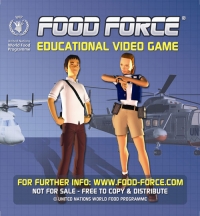Download our regular contributions to Control Magazine.
Issue 30, March 2012
Issue 29, January 2012
Issue 28, December 2011
Issue 27, November 2011
Issue 26, August 2011
Issue 25, July 2011
Issue 24, April 2011
Issue 23, February 2011
Issue 22, January 2011
Issue 21, November 2010
Issue 20, October 2010
Issue 18, June 2010
Issue 17, April 2010
Issue 16, January 2010
Control International Edition July 2011
Control International Edition March 2011
Control International Edition April 2010
Control International Edition August 2010
GATE final publication 2012
Results from the GATE research project
a 75 page overview (pfd 4.7 Mb)
GATE Magazine 2010
a 36-page overview of the GATE project (pdf 5.3 Mb)
Research themes:
Theme 1: Modeling the virtual World
Theme 2: Virtual characters
Theme 3: Interacting with the world
Theme 4: Learning with simulated worlds
Pilots:
Pilot Education Story Box
Pilot Education Carkit
Pilot Safety Crisis management
Pilot Healthcare Scottie
Pilot Healthcare Wiihabilitainment
Knowledge Transfer Projects:
Sound Design
CIGA
Agecis
CycART
VidART
Motion Controller
Compliance
Mobile Learning
Glengarry Glen Ross
CASSIB
EIS
Enriching Geo-Specific Terrain
Pedestrian and Vehicle Traffic Interactions
Semantic Building Blocks for Declarative Virtual World Creation
Computer Animation for Social Signals and Interactive Behaviors
Center for Advanced Gaming and Simulation
Department of Information and Computing Sciences
Utrecht University
P.O. Box 80089
3508 TB Utrecht
The Netherlands
Tel +31 30 2537088
![]() ICTRegie is a compact, independent organisation consisting of a Supervisory Board, an Advisory Council, a director and a bureau. The Minister of Economic Affairs, and the Minister of Education, Culture and Science bear the political responsibility for ICTRegie. The organisation is supported by the Netherlands Organisation for Scientific Research (NWO) and SenterNovem.
ICTRegie is a compact, independent organisation consisting of a Supervisory Board, an Advisory Council, a director and a bureau. The Minister of Economic Affairs, and the Minister of Education, Culture and Science bear the political responsibility for ICTRegie. The organisation is supported by the Netherlands Organisation for Scientific Research (NWO) and SenterNovem.
Design rules for learning through simulated worlds
New models that enable designers to improve specific learning results
Serious games can enable players to acquire and improve domain specific knowledge and sharpen cognitive skills such as spatial abilities, media literacy, decision making and problem solving. New models have been developed that can help game designers and developers to discuss and improve the design and learning effects of educational games. Although serious games have become a very popular medium, developers still require theoretical models that can help them to improve the design and thereby the learning results of serious games. This research wants to fulfill this need by focusing on three specific topics: how meanings are made through games and game play, how narrative structures can be designed to improve learning processes, and how rhetorical strategies can be designed to convince players of certain perspectives (e.g. political games), or behavioural changes (e.g. health games). With the insights gained from this research, we will formulate specific design rules for game-based learning.
Building on the analysis of the medium specificity of serious games, we created a heuristic tool or model - the gaming dispositif - that takes into account the interplay between technical, textual, contextual, psychological as well as social processes involved in the game-playing situation. This model enables us, for example, to understand how serious games trigger different educational readings, depending on the context in which they are embedded. We also developed a theoretical model that can be used for the analysis and design of emergent narratives in serious games. Breaking with a classical narrative approach, this model focuses on space and spatial exploration, and on how games offer players firsthand narrative experiences in the here-and-now. Finally, we studied the qualities of serious games that enable, promote, limit or impede persuasion. We are using these insights to formulate effective and efficient strategic guidelines for persuasive game design. Taking into account the differences and similarities between persuasion, manipulation and learning, this model can elucidate why and how serious games can be so exceptionally persuasive. Designers can use these models to improve specific learning results.
To be able to formulate specific guidelines for designing educational games, we will extend and improve the new models we have developed so far. A specific issue of learning is that it should be accountable and measurable. That's why we want to start with an empirical evaluation of how serious games make use of narrative structures and rhetorical strategies to engage players in learning processes. We will not only summarize the empirical evidence on the effectiveness of existing best practices of serious games (e.g. Food Force), but also participate in the design of new games (e.g. Schiphol SmartGate). The latter will be done in close collaboration with gaming companies in a so-called knowledge transfer project. Furthermore, we also want to include social network games in our research (e.g. FarmVille). We will bring together knowledge on social networking mechanics and serious game design fundamentals to investigate the potential of social networks such as Facebook for game-based learning.
Workpackage
4.2 Design rules for learning through simulated worlds
Partners
Utrecht University
Key Publications
J. Raessens (2010). A taste of life as a refugee: How serious games frame refugee issues. In: Changes in Museum Practice. New Media, Refugees and Participation, pp. 94-105.
J. Raessens (2009). The gaming dispositif. An analysis of serious games from a humanities perspective. In: Serious Games: Mechanisms and Effects, pp. 486-512.
S. Lammes (2009). Terra incognita: Computer games, cartography and spatial stories. In: Digital Material. Tracing New Media in Everyday Life and Technology, pp. 223-235.
More publications.
Contact details
Prof.dr. Joost Raessens, Utrecht University
J.Raessens(at)uu.nl
Projectdescription
For a detailed description of the project, click here.

